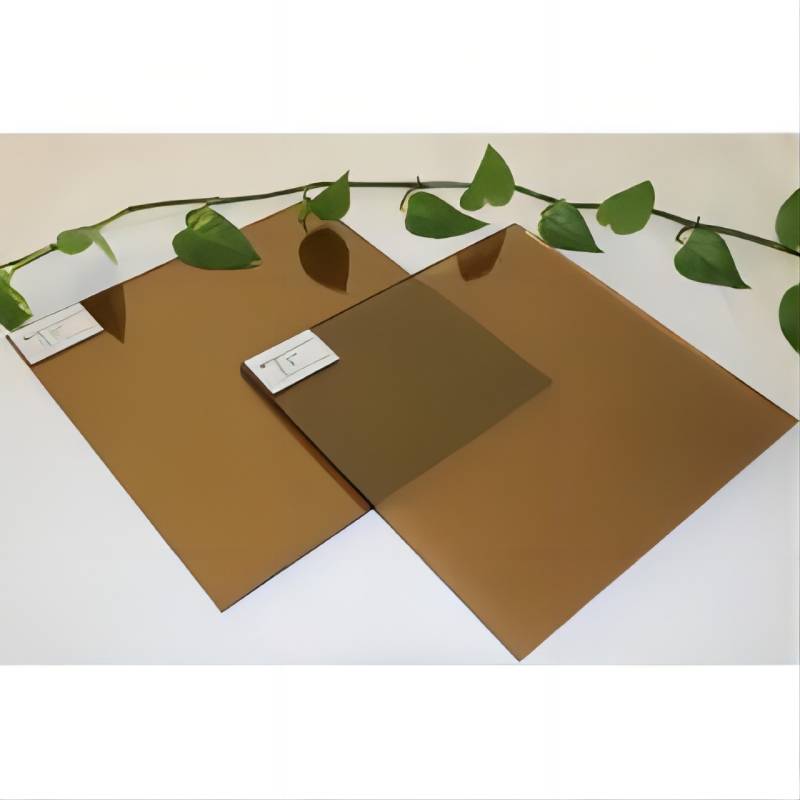The Fascinating World of One-Way Mirror Glass
One-way mirror glass, often referred to as two-way mirror or observation mirror, is a remarkable material that has captured the interest of architects, designers, and security professionals alike. This unique glass serves a dual purpose it functions as a mirror on one side while allowing visibility through the other. The implications of one-way mirror glass in various fields are extensive, from architecture to surveillance, making it a subject worthy of exploration.
Understanding One-Way Mirror Glass
At its core, one-way mirror glass is created through a specific manufacturing process that involves layering a thin film of metal on a piece of glass. This coating reflects light on one side while permitting light to pass through it from the opposite side. The effectiveness of this glass largely depends on the lighting conditions; for instance, if one side is brightly lit and the other kept dim, the light reflects off the illuminated side, creating the illusion of a standard mirror.
This property leads to its distinctive name a one-way mirror. However, the reality is that it isn't truly one-way; it simply works under specific conditions where the light difference is significant.
Applications in Various Fields
One of the most common applications of one-way mirror glass is in security and surveillance. It is often used in police interrogation rooms, allowing officers to observe suspects without being seen. This setup can create a psychological advantage, as the person being observed is unaware of the observers, often leading to more genuine interactions and responses. Similarly, it is employed in various security settings, such as banks, casinos, and retail stores, to deter theft and monitor customer behavior discreetly.
one way mirror glass
In architecture and interior design, one-way mirror glass is used to create visually expansive spaces while maintaining privacy. For example, it is frequently utilized in conference rooms and offices, providing a modern aesthetic while allowing natural light to flow through. This material can also be found in residential designs, where homeowners seek to enhance privacy from busy urban environments without compromising on brightness and views.
One-way mirror glass serves another intriguing purpose in the realm of psychology. Research labs often employ this glass to facilitate observational studies, allowing researchers to witness human behavior without influencing their subjects. By removing the awareness of being watched, more authentic behaviors can emerge, providing richer data for study.
Challenges and Considerations
Despite its many benefits, there are challenges in using one-way mirror glass. The effectiveness of its one-way property is highly contingent on lighting, which means it may not always work as intended. If the lighting conditions are not optimal, the view can be compromised, making it essential to consider the specific environment where the glass will be installed.
Moreover, ethical considerations arise in surveillance contexts. While one-way mirror glass can be a useful tool for security and research, it raises questions about privacy and consent. Those being observed may have varying levels of comfort with the situation, and it is crucial for organizations to handle such matters sensitively.
Conclusion
In summary, one-way mirror glass is a versatile material with diverse applications spanning security, architecture, and research. Its dual functionality of reflecting and transmitting light opens up creative possibilities while also posing certain challenges and ethical considerations. As technology advances, the innovations surrounding this intriguing material will likely continue to evolve, revealing new ways to utilize its unique properties in our everyday lives.
 Afrikaans
Afrikaans  Albanian
Albanian  Amharic
Amharic  Arabic
Arabic  Armenian
Armenian  Azerbaijani
Azerbaijani  Basque
Basque  Belarusian
Belarusian  Bengali
Bengali  Bosnian
Bosnian  Bulgarian
Bulgarian  Catalan
Catalan  Cebuano
Cebuano  Corsican
Corsican  Croatian
Croatian  Czech
Czech  Danish
Danish  Dutch
Dutch  English
English  Esperanto
Esperanto  Estonian
Estonian  Finnish
Finnish  French
French  Frisian
Frisian  Galician
Galician  Georgian
Georgian  German
German  Greek
Greek  Gujarati
Gujarati  Haitian Creole
Haitian Creole  hausa
hausa  hawaiian
hawaiian  Hebrew
Hebrew  Hindi
Hindi  Miao
Miao  Hungarian
Hungarian  Icelandic
Icelandic  igbo
igbo  Indonesian
Indonesian  irish
irish  Italian
Italian  Japanese
Japanese  Javanese
Javanese  Kannada
Kannada  kazakh
kazakh  Khmer
Khmer  Rwandese
Rwandese  Korean
Korean  Kurdish
Kurdish  Kyrgyz
Kyrgyz  Lao
Lao  Latin
Latin  Latvian
Latvian  Lithuanian
Lithuanian  Luxembourgish
Luxembourgish  Macedonian
Macedonian  Malgashi
Malgashi  Malay
Malay  Malayalam
Malayalam  Maltese
Maltese  Maori
Maori  Marathi
Marathi  Mongolian
Mongolian  Myanmar
Myanmar  Nepali
Nepali  Norwegian
Norwegian  Norwegian
Norwegian  Occitan
Occitan  Pashto
Pashto  Persian
Persian  Polish
Polish  Portuguese
Portuguese  Punjabi
Punjabi  Romanian
Romanian  Russian
Russian  Samoan
Samoan  Scottish Gaelic
Scottish Gaelic  Serbian
Serbian  Sesotho
Sesotho  Shona
Shona  Sindhi
Sindhi  Sinhala
Sinhala  Slovak
Slovak  Slovenian
Slovenian  Somali
Somali  Spanish
Spanish  Sundanese
Sundanese  Swahili
Swahili  Swedish
Swedish  Tagalog
Tagalog  Tajik
Tajik  Tamil
Tamil  Tatar
Tatar  Telugu
Telugu  Thai
Thai  Turkish
Turkish  Turkmen
Turkmen  Ukrainian
Ukrainian  Urdu
Urdu  Uighur
Uighur  Uzbek
Uzbek  Vietnamese
Vietnamese  Welsh
Welsh  Bantu
Bantu  Yiddish
Yiddish  Yoruba
Yoruba  Zulu
Zulu 

